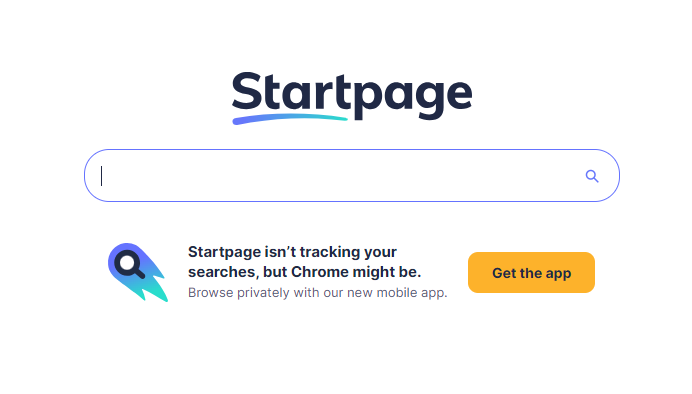A search engine is a tool that helps people find information on the internet. By typing in keywords or questions, a search engine looks through billions of web pages to show the most relevant results. It can display websites, images, videos, and more. Popular search engines like Google, Bing, and Yahoo use complex algorithms to quickly sort through data. They make it easy to explore the vast amount of information available online and find answers to almost any query. In this article, we’ll explore ten top search engines, providing a brief description of each to help you understand their usage and benefits.
Google is a popular search engine that helps people find information on the internet. When you type a question or topic into Google, it shows you a list of websites, images, or videos that match your search. Launched in 1998 by Larry Page and Sergey Brin, Google revolutionized the way people search for information online. Its powerful algorithms deliver highly relevant search results, which is a major reason for its widespread use. Beyond basic web searches, Google offers a suite of services, including Google Maps, Google Drive, and Google Scholar. These tools integrate seamlessly with the search engine, providing a comprehensive user experience. Google also continually updates its algorithms to improve search results and user satisfaction.

Bing
Bing, developed by Microsoft and launched in 2009, is the second most popular search engine after Google. Bing offers a visually appealing interface with high-quality background images that change daily. It integrates well with Microsoft’s suite of products, such as Windows and Office, and features services like Bing Maps and Bing Translator. One of Bing’s notable features is its rewards program, which allows users to earn points for searches and redeem them for various rewards, including gift cards and charitable donations. Bing also includes a video preview feature, which lets users watch a short clip before clicking on a video link.

Yahoo
Yahoo Search, although now powered by Bing, remains a significant player in the search engine market. Yahoo began as a directory service in the mid-1990s and evolved into a full-fledged search engine. Despite no longer managing its search algorithm, Yahoo retains a strong presence due to its other services, such as Yahoo Mail, Yahoo Finance, and Yahoo News. The search functionality provided by Yahoo is powered by Bing’s technology, meaning users benefit from Bing’s search results while still accessing Yahoo’s familiar interface and additional services.

DuckDuckGo
DuckDuckGo is a search engine known for its emphasis on privacy. Launched in 2008, DuckDuckGo does not track user activity or store personal information, which sets it apart from many other search engines. It provides straightforward, unbiased search results without personalizing them based on user history. DuckDuckGo’s interface is clean and simple, focusing on delivering relevant results quickly. For users concerned about online privacy and data security, DuckDuckGo offers a valuable alternative to more traditional search engines.

Baidu
Baidu is the leading search engine in China and caters primarily to Mandarin-speaking users. Established in 2000, Baidu offers a range of services similar to those of Google, including maps, news, and an online encyclopedia called Baidu Baike. Its search algorithms are optimized for Chinese language queries, making it an essential tool for accessing information within China. Baidu also offers various additional features, such as a music search engine and a cloud storage service, making it a versatile platform for Chinese-speaking users.

Yandex
Yandex is the most popular search engine in Russia, founded in 1997. It provides comprehensive search results tailored to Russian language queries and is known for its advanced technology and localized features. Yandex offers a wide range of services, including Yandex Maps, Yandex Mail, and Yandex Disk (a cloud storage service). It also provides specialized search functions, such as Yandex Images and Yandex Video. Yandex’s ability to handle Russian language searches effectively and its extensive service offerings make it a key player in the Russian and neighboring markets.

Ask.com
Ask.com, originally known as Ask Jeeves, was launched in 1996 with a unique focus on question-and-answer search. Users could type in questions, and Ask.com would provide direct answers along with relevant search results. While it has lost some popularity over the years, Ask.com still offers a question-based search experience that can be useful for users looking for specific answers. The search engine has evolved to include traditional search functions as well, powered by technology from other major search engines.

AOL Search
AOL Search is part of the suite of services provided by America Online (AOL). Launched in the mid-1990s, AOL Search has seen a decline in popularity but remains available for users who prefer its simple search interface. AOL Search is powered by Bing, meaning users receive search results similar to those from Bing. It integrates with AOL’s other services, such as AOL Mail and AOL News, offering a unified experience for those who use multiple AOL products.

WolframAlpha
WolframAlpha is a unique search engine that focuses on computational knowledge rather than traditional web search. Launched in 2009, WolframAlpha uses algorithms and a vast database to provide answers to factual queries in fields like mathematics, science, and statistics. It is particularly useful for solving complex equations, analyzing data, and obtaining specific information. Unlike other search engines that provide links to web pages, WolframAlpha delivers direct answers and computations, making it a valuable tool for students, researchers, and anyone seeking precise information.

Startpage
Startpage is a privacy-centric search engine that provides Google search results while protecting user data. Launched in 2009, Startpage does not track or store user information, offering a high level of privacy for those who want to avoid personalized search results and data collection. Startpage’s interface is straightforward, and it features a proxy service that allows users to view web pages anonymously. For individuals concerned about their online privacy but still wanting to benefit from Google’s search capabilities, Startpage offers a compelling alternative.

Conclusion
In conclusion, each of these search engines has its own set of features and advantages, catering to different user needs and preferences. Whether you prioritize privacy, regional content, or a question-based approach, there is a search engine to suit your requirements. Exploring these options can help you find the one that best fits your search habits and preferences.
Recommended Article
- Top 10 Trending Technologies in 2025 You Must Know

- What is a Chromebook? Features, Uses, and Benefits



- How to Choose Right Pen Drive: Storage, Speed, Security & More



- Best OTT Platforms In India for Streaming Movies & Shows



- Free Keyword Research Tools For Bloggers and Content Creators



- DeepSeek vs ChatGPT : Which AI Model Is Better for You?



- Uses of Computer Network in Daily Life



- What is IPv4 Address? Types, Structure, Feature & How It Works



- Top 20 Off-Page SEO Services to Boost Your Website Rankings



- Top 20 Highest Salary Jobs : Lucrative Careers with Best Salaries - 5 April 2025
- Types of Operating System (OS): Features,Types And Uses - 5 April 2025
- 15 Features of Operating System You Should Know - 4 April 2025




